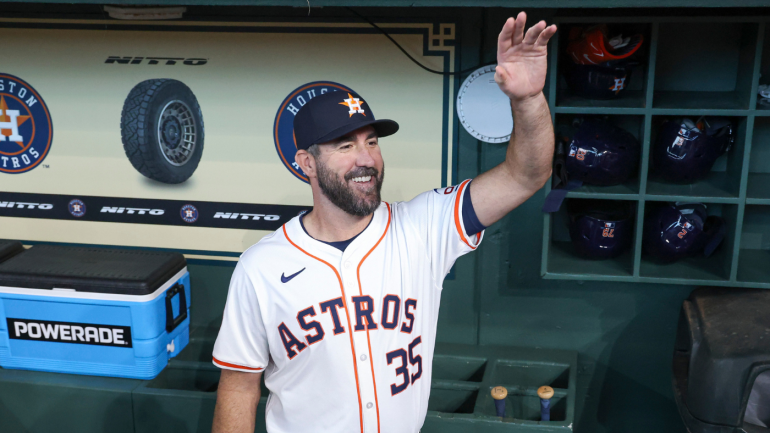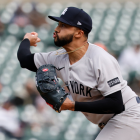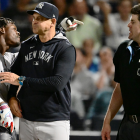
A recent rash of arm injuries in Major League Baseball – some of them affecting top-line pitchers like Shane Bieber of the Guardians and Spencer Strider of the Braves – have put discussions about pitcher health back at the forefront. Indeed, the league and Player Association have exchanged dueling press releases about whether the pitch clock is playing a role in these injuries.
Opinions on this matter are of course in abundance right now, and one of the best pitchers of his generation, Justin Verlander of the Astros, is no exception. While amassing the career numbers that will one day make him a first-ballot Hall of Famer, Verlander has also dealt with his share of pitching-related injuries, including Tommy John surgery. In fact, Verlander right now is in the midst of working his way back from shoulder inflammation.
While Verlander was on rehab assignment in the minors, Ari Alexander of KPRC2 asked the decorated right-hander about this issue. Notably, Verlander referred to the current scale of the problem as a "pandemic" and speculated that increased velocity rather than the pitch clock is the primary driver. Verlander said:
"I think the biggest thing is that the style of pitching has changed so much. Everyone is throwing the ball as hard as they possibly can and spinning the ball as hard as they possibly can."
…
"It's a double-edged sword. How can you tell somebody to not do that when they're capable of throwing 100 mph? Something needs to change."
Those changes would likely entail structural and rules-based incentives to prioritize longer outings over short-burst, high-velocity appearances. This extends to not only starting pitchers but also relievers, who even in the three-batter-minimum era continue to focus on maximizing velocity and sharp movement.
As Verlander notes, changing the current incentives won't be easy and will take a great deal of time. At the same time, though, it may be the only way to reduce the high-level of attrition currently endured by big-league pitchers. MLB is presently conducting an inquiry into the matter, and the hope is that actionable steps come out of their research -- steps that all sides can agree upon.
![[object Object] Logo](https://sportshub.cbsistatic.com/i/2020/04/22/e9ceb731-8b3f-4c60-98fe-090ab66a2997/screen-shot-2020-04-22-at-11-04-56-am.png)



















